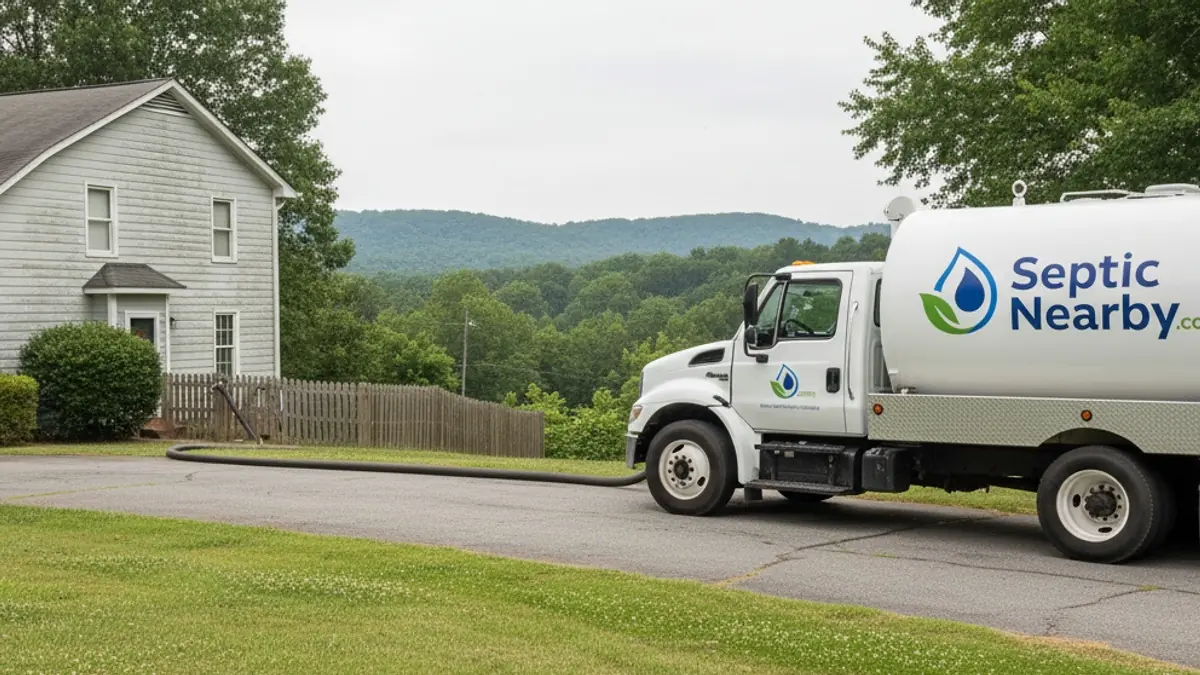Septic Pumping Services in Franklin County, GA
 Photo Illustrative
Photo Illustrative+1-470-9-SEPTIC
Operators available 7 AM - 9 PM
Licensed & Insured • No Obligation • Emergency Service Available
Cities We Serve in Franklin County
Local Septic System Factors in Franklin County
Managing Franklin County's On-Site Wastewater Infrastructure
As the Public Works authority for Franklin County, Georgia, our primary responsibility is the oversight and integrity of the infrastructure that supports our communities. While cities like Lavonia and Royston have access to municipal sewer services in their core areas, the vast majority of Franklin County—from the rolling hills around Carnesville to the quiet homesteads near Canon—relies on decentralized wastewater treatment. This means nearly every rural and suburban property depends on an individual on-site sewage management system, commonly known as a septic system.
This network of thousands of private systems constitutes a critical, if unseen, piece of our county's public works infrastructure. Its proper functioning is essential for protecting groundwater, surface water, and public health. Unlike centralized sewer, the maintenance responsibility for this infrastructure rests with individual property owners. Our role is to provide clear guidance, enforce sound regulations through the Franklin Board of Health, and ensure a high service level is available from local providers.
The unique geology and climate of our region present specific challenges. Franklin County is situated in the Southern Outer Piedmont, characterized by soils with significant clay content, such as Cecil sandy clay loam and Madison clay loam. These soils have slower percolation rates compared to sandier compositions. When combined with our humid subtropical climate, which delivers an average of 48-52 inches of rainfall annually, soil saturation can become a significant factor affecting drainfield performance. A poorly maintained system in these conditions doesn't just fail the homeowner; it poses a risk to the surrounding environment.
Our approach to managing this distributed infrastructure is threefold: regulatory oversight, public education, and forward-looking planning. Regulatory oversight ensures that new installations and major repairs meet stringent state and local codes designed for our specific environmental conditions. Public education, through resources like this hub, empowers homeowners to become effective stewards of their own systems. This reduces costly failures and protects our shared natural resources.
Finally, we engage in long-term planning. While there are no immediate plans for massive sewer expansion, we continuously evaluate development patterns and environmental data. Monitoring the density of septic systems in developing areas and understanding their cumulative impact is part of our capital improvement planning process. By tracking system performance and failure rates, we can anticipate future needs and allocate public resources effectively. A well-maintained septic system is a durable, effective wastewater solution. This guide provides the essential information Franklin County homeowners need to manage their on-site infrastructure responsibly.
Frequently Asked Questions in Franklin County
Key septic regulations in Franklin
All on-site sewage systems are regulated by the Franklin Board of Health, following the rules set by the Georgia Department of Public Health. A construction permit is mandatory for any new system installation or for significant repairs, such as replacing a tank or drainfield. Routine maintenance, including pumping the tank, does not require a permit.
Average pumping cost across Franklin
The cost for a standard septic tank pumping typically ranges from $300 to $600. The final price depends on several factors, including your location and the associated travel time for the service truck, the size of your tank (e.g., 1000 vs. 1500 gallons), and accessibility. If the tank lids are buried and require significant digging, the cost may be higher.
How often to pump septic systems in the county?
The general recommendation is to have your septic tank pumped every 3 to 5 years. However, this can vary. A household with more occupants will need more frequent pumping. Furthermore, systems in areas with a high water table or dense clay loam soils may benefit from a more frequent schedule to reduce stress on the drainfield.
Weather and scheduling in Franklin
Our humid climate and frequent rain, especially in spring and summer, can saturate the ground. We recommend scheduling non-emergency pumping and any major repairs during the drier fall months. Servicing a system when the ground is saturated can make access difficult for heavy equipment and may damage your lawn and the soil structure around the system.